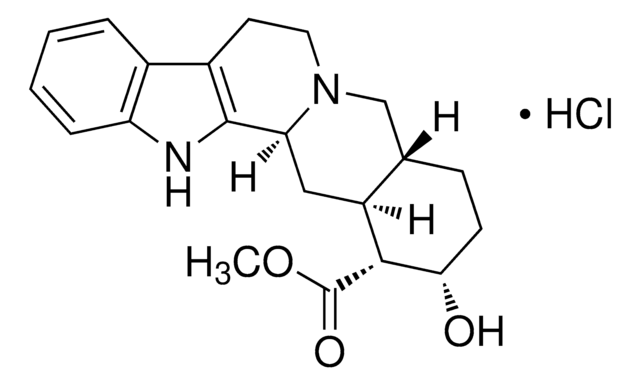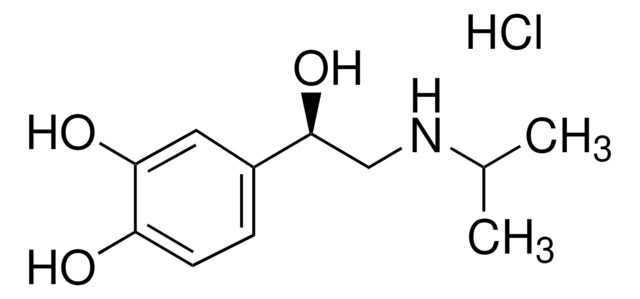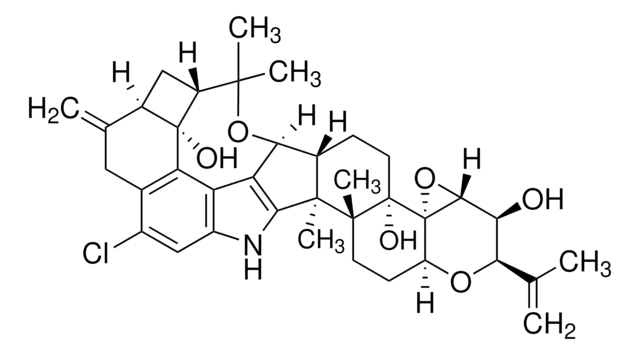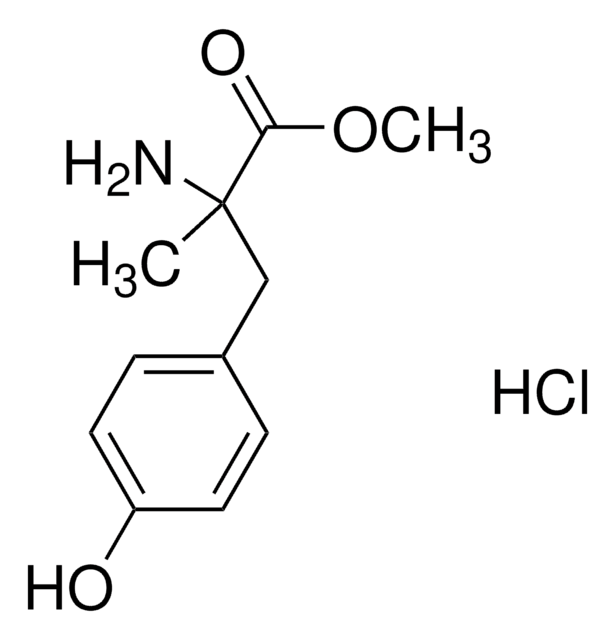P7547
Phentolamine hydrochloride
≥98% (TLC), powder
Synonyme(s) :
2-[N-(3-Hydroxyphenyl)-p-toluidinomethyl]-2-imidazolidine hydrochloride, 3-[[(4,5-Dihydro-1H-imidazol-2-yl)-methyl](4-methylphenyl)-amino]-phenol monohydrochloride
About This Item
Produits recommandés
Niveau de qualité
Pureté
≥98% (TLC)
Forme
powder
Couleur
white to off-white
Solubilité
ethanol: 14 mg/mL
H2O: 20 mg/mL
H2O: unstable (prepare immediately prior to use)
Auteur
Novartis
Chaîne SMILES
Cl[H].Cc1ccc(cc1)N(CC2=NCCN2)c3cccc(O)c3
InChI
1S/C17H19N3O.ClH/c1-13-5-7-14(8-6-13)20(12-17-18-9-10-19-17)15-3-2-4-16(21)11-15;/h2-8,11,21H,9-10,12H2,1H3,(H,18,19);1H
Clé InChI
TUEJFGFQYKDAPM-UHFFFAOYSA-N
Informations sur le gène
human ... ADRA1A(148) , ADRA1B(147) , ADRA1D(146) , ADRA2A(150) , ADRA2B(151) , ADRA2C(152)
Vous recherchez des produits similaires ? Visite Guide de comparaison des produits
Actions biochimiques/physiologiques
Caractéristiques et avantages
Stockage et stabilité
Mention d'avertissement
Warning
Mentions de danger
Conseils de prudence
Classification des risques
Acute Tox. 4 Oral
Code de la classe de stockage
11 - Combustible Solids
Classe de danger pour l'eau (WGK)
WGK 3
Point d'éclair (°F)
Not applicable
Point d'éclair (°C)
Not applicable
Équipement de protection individuelle
dust mask type N95 (US), Eyeshields, Gloves
Certificats d'analyse (COA)
Recherchez un Certificats d'analyse (COA) en saisissant le numéro de lot du produit. Les numéros de lot figurent sur l'étiquette du produit après les mots "Lot" ou "Batch".
Déjà en possession de ce produit ?
Retrouvez la documentation relative aux produits que vous avez récemment achetés dans la Bibliothèque de documents.
Les clients ont également consulté
Notre équipe de scientifiques dispose d'une expérience dans tous les secteurs de la recherche, notamment en sciences de la vie, science des matériaux, synthèse chimique, chromatographie, analyse et dans de nombreux autres domaines..
Contacter notre Service technique














